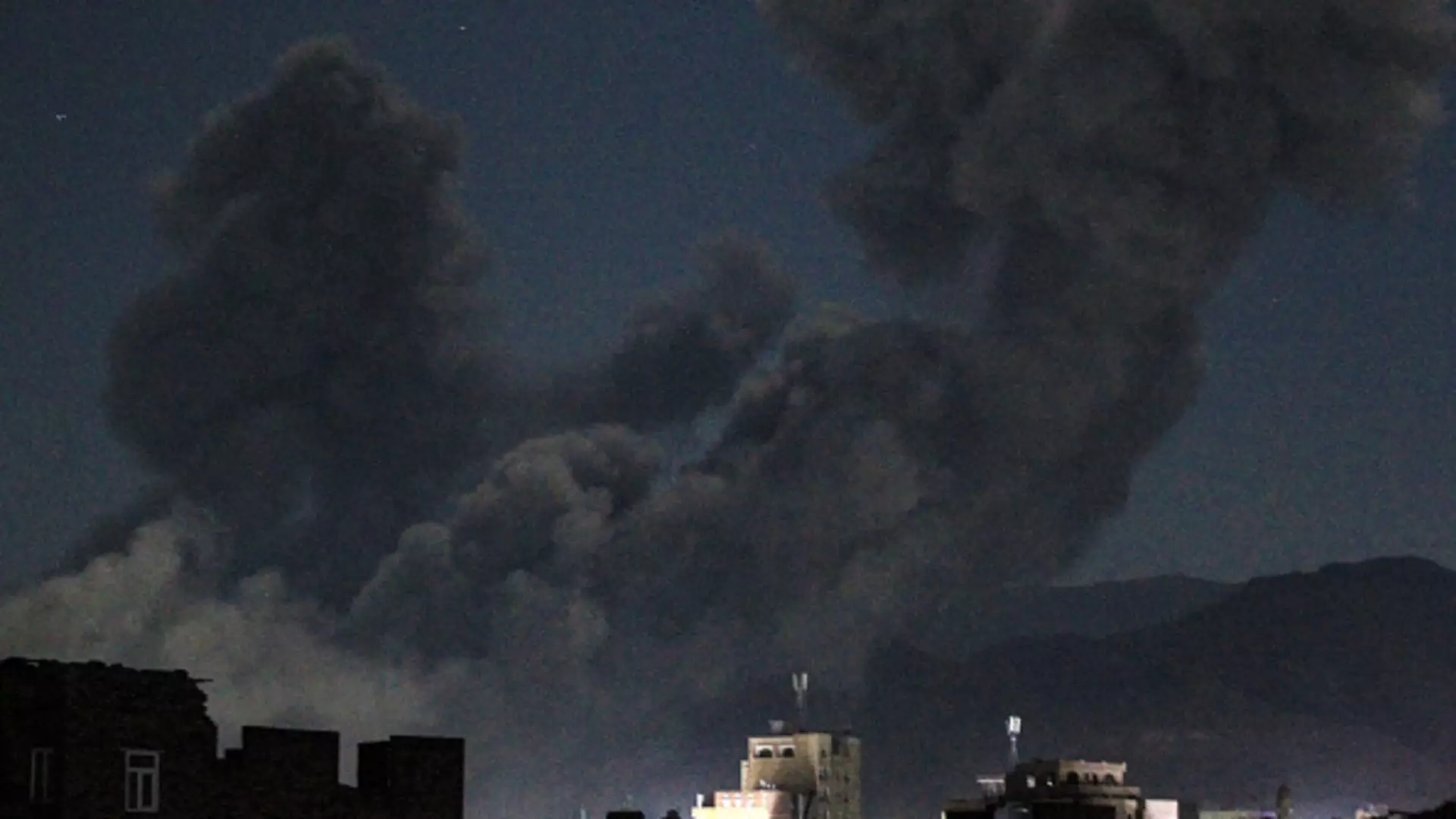In the tumultuous landscape of geopolitical relations, the risks of military engagement cannot be overstated. President Donald Trump’s recent decision to unleash widespread military strikes against Yemen’s Houthis—aligned with Iran—underscores a dangerous path that prioritizes aggression over diplomatic discourse. With at least 31 casualties reported, including vulnerable women and children, these strikes reflect a disconcerting trend of viewing warfare as a viable solution to complex political crises.
The strikes, aimed at disrupting Houthi aggression against Red Sea shipping, signal a brazen escalation in U.S. foreign policy, shifting from containment tactics witnessed under previous administrations to an unabashed display of military might. This approach not only endangers lives but also sows the seeds for further violence, creating a cycle where vengeance begets more vengeance. The realities of war reveal themselves through the accounts of civilians caught in the crossfire, such as Abdullah Yahia, whose neighborhood was rattled by the violent explosions. This stark depiction—where “the neighborhood shook like an earthquake”—transports us from the strategic boards of political leaders into the harrowing realities faced by ordinary citizens.
The Dangerous Dance of Power and Retaliation
The military strikes are further complicated by the fierce rhetoric exchanged between nations. Trump’s words—vowing that “Houthi terrorists” will face hellfire—reflect a confrontational stance that overlooks the potential for diplomatic engagement. The inflammatory declarations echo a trend in modern politics where leaders wield threats as tools in their arsenals, rather than seeking constructive dialogue. Iran’s Revolutionary Guards have validity when they assert that the Houthis act independently, turning an already fraught situation into a volatile chess game where every move is met with counterattacks.
Moreover, Trump’s refusal to acknowledge the multi-dimensional character of the Houthis as political actors betrays a simplistic view of conflict. It is vital to recognize that the Houthis, claiming their attacks are in solidarity with Palestinians amid the tumult in Gaza, operate within a larger narrative that impacts regional stability. This entanglement of causes raises the question: Is American military intervention genuinely aimed at safeguarding global commerce, or does it serve as a cover for deeper political and economic interests?
The Influence of Global Powers
The involvement of Iran and the violent history between the U.S. and Iranian leaders demonstrates the perils of entangled allegiances in conflicts. While Trump aims to exert pressure on Iran, the Iranian response rebuffs direct engagement, signaling a potential deadlock in negotiations over nuclear programs. The ongoing military actions are likely to harden positions on both sides, rendering meaningful dialogue even more challenging.
Sanctions and military strikes create an environment ripe for further antagonism. With Trump diverging from the caution exercised by the Biden administration, he has redefined U.S. foreign policy, aiming to reclaim a strongman image at the expense of innocence. The latest military operation, according to a Pentagon spokesperson, marks a significant uptick in U.S. efforts to contain Iranian influence and Houthi activities in Yemen. However, this aggressive pivot operates under a glaring misconception: the belief that might will triumph over more strategic forms of engagement. One only need observe the repercussions of similar past strategies to question their effectiveness.
The Human Cost of Conflict
The statistics emerging from Yemen—31 dead, 101 injured—paint a grim picture of the human price paid for politically motivated military ventures. These numbers, however, represent more than mere data; they encapsulate the shattered lives of individuals swept up in conflicts that extend beyond their control. Each casualty is a story cut short, a future extinguished by decisions made in distant capitals. The term “war crime” bandied about by Houthi officials resonates through the lens of humanitarian standards yet seemingly holds little weight in the halls of power where decisions about strikes are made.
As Americans, we must ask ourselves: Is this the path we wish to traverse? A trajectory marked by ongoing violence met with vicious reprisals, producing cycles of retaliation that harm the very people we profess to liberate? The unintended consequences of military action likely invite more aggression and retaliation, potentially leading to an endless war—even as a humanitarian catastrophe looms over Yemen.
A Call for a Reflective Reawakening
This moment serves not just as a critique of Trump’s methodologies but also a broader indictment of a culture that equates victoriously large-scale military operations with effective governance. The soul-searching should extend beyond the President and the Pentagon, inviting citizens to grapple with the moral implications of U.S. foreign interventions. If America is genuinely committed to upholding peace, the embrace of diplomacy over warfare must take precedence.
In grappling with the consequences of these recent strikes, it is crucial to uplift the voices of those directly impacted. A military campaign of this magnitude orchestrated from afar ignores the intrinsic value of human lives while simultaneously entrenching an environment ripe for further conflict. The objective should not merely rest on executing military strategies but should pivot towards realizing just and informed policies that reflect a commitment to peace, equity, and humanity.


Leave a Reply